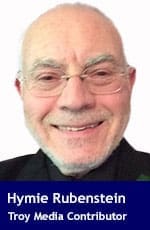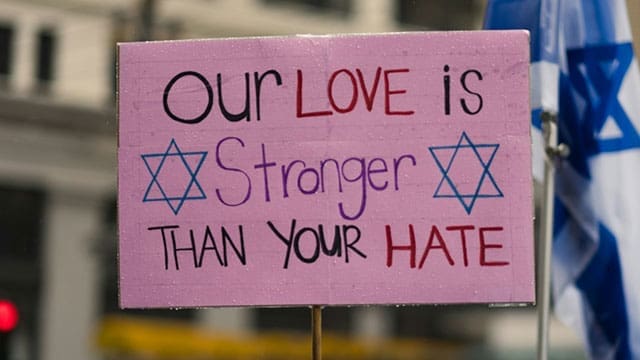How common is the belief “The Jew is Not My Enemy” in Islam today?
 Journalist Tarek Fatah, author of the 2011 book The Jew is Not My Enemy and founder of the moderate Muslim Canadian Congress, strongly rejected violent Islamism, receiving death threats from extremists for doing so.
Journalist Tarek Fatah, author of the 2011 book The Jew is Not My Enemy and founder of the moderate Muslim Canadian Congress, strongly rejected violent Islamism, receiving death threats from extremists for doing so.
Fatah argued that antisemitism is incompatible with Islam, supported Israel’s right to exist, and opposed Sharia (Islamic religious law). These views led many influential Muslims to reject Fatah, claiming his stance contradicted fundamental teachings of Islam.
Fatah particularly challenged Hadith writings – supplementary Islamic texts attributed to Mohammed and his companions but compiled outside the Quran – that promote Arab supremacist doctrines and hatred of Jews.
Fatah died last year, but during his lifetime his arguments often fell on deaf ears within the Muslim community. This is evidenced by the recent horrendous Oct. 7 Hamas attack on Israel.
And it’s clear from past and present conflicts, many predating the re-founding of Israel in 1948 by its Indigenous descendants, has never been about territory, settler colonialism, or apartheid but rather a deep-seated aversion to any Jewish presence in the region.
So, what explains the hatred of Jews so dramatically shown in an Oct. 7 slaughter?
How can someone who identifies as a believer in Allah promote violence? The RCMP is currently investigating Montreal Imam Adil Charkaoui for potentially inciting violence against Jews following his public exhortation to “kill the enemies of the people of Gaza.”
Fatah is among several researchers who have examined whether modern Islamic extremism stems from interpretations – whether accurate, inaccurate, or exaggerated – of the faith’s sacred texts, or if it arises from contemporary issues like poverty, political marginalization, cultural isolation, and other forms of alienation, including real or perceived discrimination against Muslims, which may have distorted Islam’s foundations.
Ayaan Hirsi Ali, a Somali-born Dutch-American activist and Hoover Institution research fellow, recently converted to Christianity. She challenges the view that Islamic extremism is solely rooted in misinterpretations of sacred texts or contemporary issues like poverty and discrimination.
In her article Islam is a Religion of Violence, she divides Muslims into three groups: (1) fundamentalists who embrace sharia law and its violent underpinnings; (2) the majority of Muslims who are loyal to Islam’s core teachings but are not inclined to violence; and (3) “modifying Muslims,” moderates who advocate for the separation of religion from radical politics.
Ali believes that the future of Islam and the world’s relationship with Muslims will depend on which of the two minority groups gains the support of the majority of Muslims who remain neutral.
This is a crucial observation, given her claim that “violence is inherent in the doctrine of Islam” due to the warlike nature of its founder, Mohammed, and the passages in the Quran and Islamic jurisprudence used to justify the current violence in many Muslim regions.
If she is correct, the critical question is not whether Islam is a religion of peace but whether more Muslims will follow the warrior Mohammed or the peaceful Mohammed moving forward.
Ali writes, “The view that the ideology of radical Islam is rooted in Islamic scripture understands fully the cause of terrorism; it takes religious arguments seriously and does not view them as a mere smokescreen for underlying ‘real’ motivations, such as socio-economic grievances.”
Given the horrific events of Oct. 7 and many that preceded it in Israel and elsewhere, the warrior Mohammed has long occupied the high ground.
Since Oct. 7, there have been crowds, including many non-Muslims, chanting slogans like “gas the Jew” and calling for the destruction of Israel and the elimination of Jews. These chants, such as “From the river to the sea, Palestine will be free,” are driven by extreme antisemitic beliefs rooted in certain interpretations of Islamic teachings rather than political and economic grievances.
Tarek Fatah’s efforts to convince Jews and Muslims that they are not enemies seem a long way off, and the term “moderate Muslim leader” appears less applicable than ever.
Hymie Rubenstein is a retired professor of anthropology at the University of Manitoba and editor of REAL Indigenous Report.
For interview requests, click here.
The opinions expressed by our columnists and contributors are theirs alone and do not inherently or expressly reflect the views of our publication.
© Troy Media
Troy Media is an editorial content provider to media outlets and its own hosted community news outlets across Canada.

